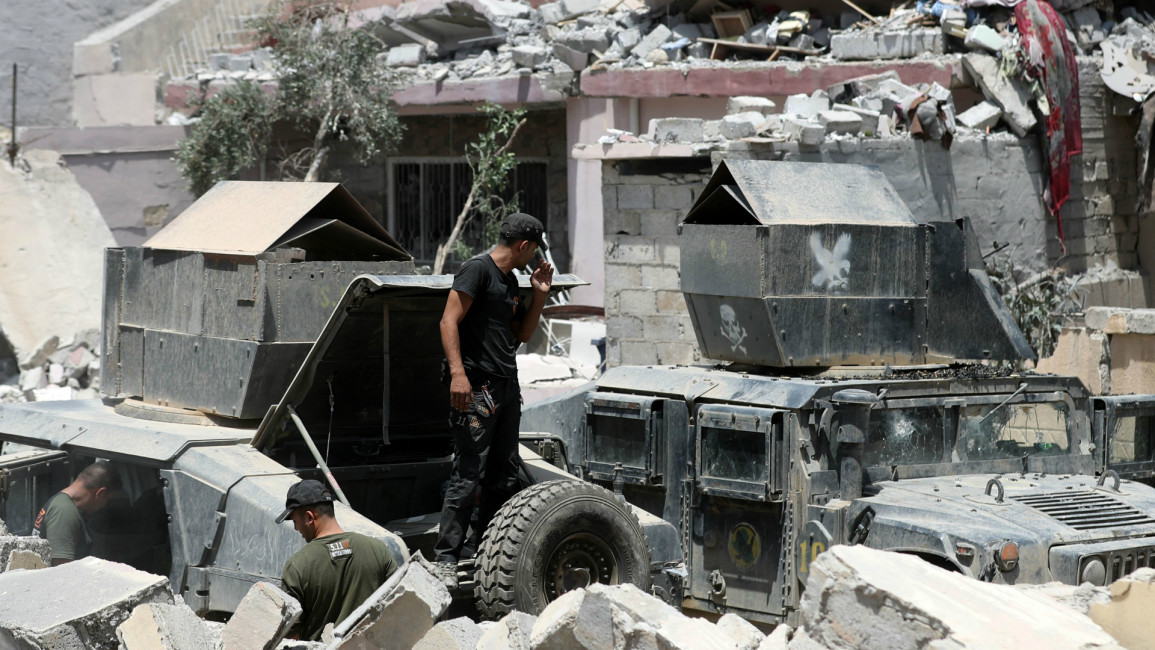Mosul will be liberated in 'one week': Iraqi media
Abadi had reportedly issued orders to prepare for celebrations.
The recapture will be declared by Abadi himself rather than official military statements as with other cities liberated from IS, Iraqi News reports.
Abadi has given orders to prepare for celebrations in the country following the liberation, the report adds.
On Monday, Iraqi forces pressed on with the broad offensive targeting IS areas in west Mosul, urging civilians to flee the areas where fighting is taking place.
"Our units are continuing to advance... and entered Al-Saha al-Oula and Al-Zinjili and Al-Shifaa neighbourhoods and the Republican Hospital," said Joint Operations Command spokesman Yahya Rasool.
More than seven months into the massive operation to recapture Mosul, Iraqi forces have retaken the city's east and large parts of its western side, but the militants are still putting up tough resistance.
IS was using "explosives-rigged vehicles and snipers and suicide bombers" to target Iraqi forces, Rasool told AFP.
The Joint Operations Command also said Monday that Iraqi aircraft had dropped leaflets over Mosul urging residents to leave IS-held areas - the second time this was done within the past week.
Overnight, planes dropped "thousands of leaflets on the Old Mosul, Al-Zinjili, Al-Shifaa and Al-Saha areas urging citizens to leave toward our security forces," it said.
This is the opposite of the strategy Iraqi forces employed in east Mosul, where they urged civilians to stay in their homes.
International aid organisation Save the Children has said it is "deeply concerned that any calls to leave west Mosul will mean that civilians, particularly children, are in significant danger of being caught in the crossfire."
Asked about the change in tack, Rasool noted that the western side of the city has a greater population density as well as "old areas," an apparent reference to the Old City.
The area - a warren of closely spaced buildings and narrow streets - has posed a significant challenge to Iraqi forces, which have surrounded it with a large number of civilians trapped inside.
"The Old City has been blockaded for a while, completely from the south and now our units are present on the north and west," he said, while the area's eastern side is bordered by the Tigris River.
IS overran large areas north and west of Baghdad in 2014, but Iraqi forces backed by US-led air strikes have since regained much of the territory they lost.
The recapture of Mosul will not however mark the end of the war against IS: the militants hold other territory in three Iraqi provinces and are also able to carry out frequent attacks in government-controlled areas.
Agencies contributed to this report.



